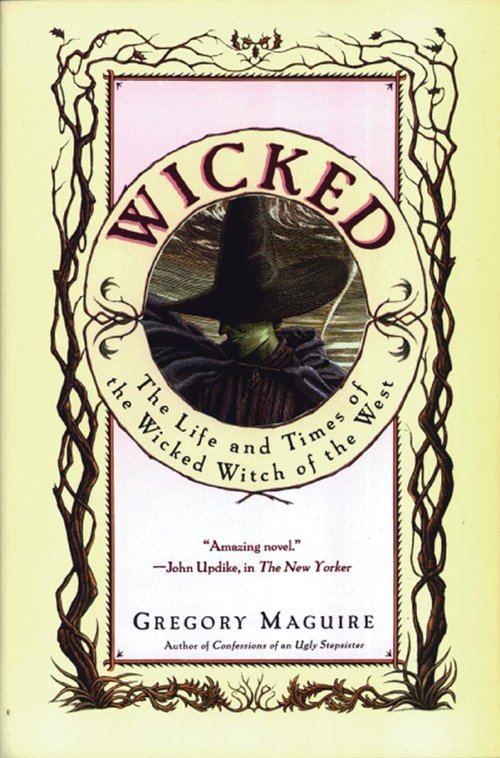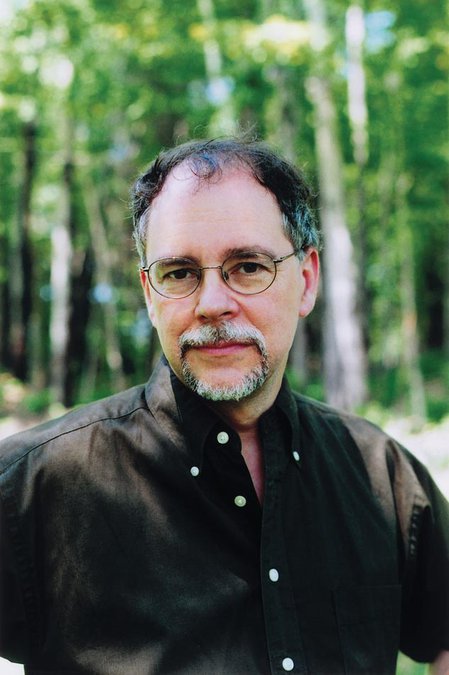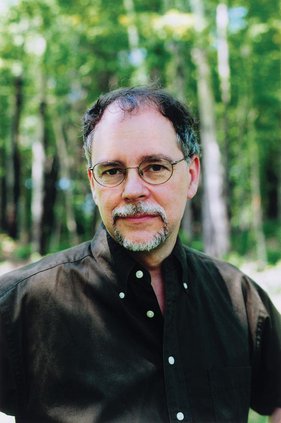Gregory Maguire, author of the critically-acclaimed book “Wicked: The Life and Times of the Wicked Witch of the West,” plans to visit Forsyth County to speak and sign books at 7 p.m. March 8 at the Forsyth Conference Center.
Maguire spoke with Forsyth County News recently on the topic of his writing and the prospect of visiting this week with residents of Forsyth County.
FR: How many of these type of events do you do every year?
GM: On a year when I have a new book out, I might do 10 or 15, but at this stage of my career, I only do three or four (per year).
FR: So, we’re getting a pretty exclusive visit here?
GM: Yes.

GM: Because I have teenagers at home, I don’t get to travel the country as much as my appetite would require … to do an event like this really puts me right up to my hipbone in areas I don’t know, interacting with people I might not otherwise have a chance to meet and, boy, is it invigorating. We are such a huge and rich and multitudinous country that it’s always rewarding to get out and be reminded of that, and I’m always happy I did it.
FR: Least favorite thing about these types of events?
GM: Flying (laughs). But, I bless the God that invented Xanax. I’m not an old-school drunk like Faulkner or Truman Capote or Tennessee Williams. I actually am quite a mild Yankee, but I need a little calming medication to get on a plane and fly several hours.
FR: I know some fiction writers around the Atlanta area, and we’ve actually talked about this myth that exists that you have to drink a lot to be an author.
GM: As we all know, the sentiments encountered when one is a little bit tipsy are very often way too over the top and also irrational … they may seem great while you’re having them, but in the light of morning you think, ‘oh, I should have just gone to the movies last night.’
FR: Talk about the type of fiction you write.
GM: I think most of us who become storytellers … start when we’re kids, and how we start is by that simple activity that used to be called playing (laughs). You remember playing? And, I don’t mean playing with a train or with board games; I mean, playing with your mind and putting yourself in imaginary situations. When I was little, we used to play cops and robbers or we’d act out stories, and ‘The Wizard of Oz’ was one of them, because we’d all seen it. So, since I played with stories when I was a kid — I used to organize my brothers and sisters and say, ‘let’s play Peter Pan. You do this and you do that — and, we wouldn’t have a script or anything. We’d just run around the backyard shrieking and acting out the parts the way we remembered them. That’s where my story writing began, and then as I became more proficient and more capable, I realized that we all own these stories. That is to say, ‘The Wizard of Oz’ maybe came from a certain author in 1900 and was brought to a larger audience in 1939, but at this point in 2018, the story of ‘The Wizard of Oz’ belongs to everybody who’s ever heard it. It’s ours. We could walks into a party and look at our hostess and say ‘oh, who invited the Wicked Witch of the West?’ and everyone knows what we mean. That’s what I mean by saying it belongs to all of us. So, when I began to write for adults, I thought, I want to write about serious things but I want to make people feel comfortable in reading them. The way I will do that, I will house them in the stories people already know and feel comfortable with. That will make my readers feel welcomed into my stories, and that will help them feel delighted when they find out that I have something other to say than what they were expecting.
FR: In the case of ‘Wicked,’ what’s it been like seeing it go from your imagination to the page to the phenomenon it became — what was it like watching that evolve?
GM: I always knew from the moment I got that idea that it was a good idea, but I did not know if I had the talent to pull it off, and so I had to learn through the act of doing whether my skillset was strong enough to take advantage of this good idea I had. When the book came out, it was very well reviewed, and I thought, ‘wow, maybe this is the only book I’m going to write, but if so I hit it out of the ballpark and I can afford to feel proud of it.’ That was more or less what I could have imagined happening, because I had been writing books already, and I am a literary person. What I couldn’t imagine is what would happen when Broadway got ahold of it and it started playing to sold out houses in five continents around the world. That was far beyond what any author … can possibly conceive of, and … it just doesn’t feel like real life. I always consider myself lucky that I happened to begin to adopt my three children at just about the time that ‘Wicked’ was being developed for the stage, because when it came out and became a huge hit I was kept from losing my mind with ego by the fact that my kids needed me to buy the Cheerios and take them to the doctor. The presence of my kids helped me keep both feet on the ground.
FR: What is the best advice you’d give to someone who wants to be a writer?
GM: I believe … people are not reading as often as they used to, and they are not pushing their own comfort envelopes as often as they used to. I’d say, prohibit the amount of screen time you allow yourself and allow yourself of the comfort of a white page in a library book or one from a bookstore. That skill is really easy to use. I say that as someone who grew up in the pre-digital era, and I find my own reading skills being eroded by the iPhone and the internet, but I say resist that in every way that you can, because if you lose the capacity to engage fully, to dip deeply, into written language, you will no longer be able to write stories.
The event is sponsored by Forsyth County Public Library, FCPL Friends & Advocates, The Forsyth County Arts Alliance Fund at the Forsyth County Community Foundation, and BookLogix and is part of Forsyth Reads Together, a county-wide program that encourages the whole community to read, discuss and participate in programs associated with a selected book.=

